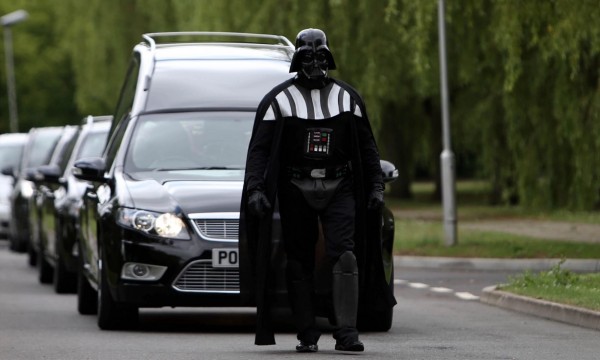As our longevity increases, we are starting to see death as something to be controlled and rebuffed, not as a collective sorrow to be shared

Winter is a time for my suit, not for warmth but for attendance at funerals; it’s the season for dying. I walked back from one such event with Nicole, who has a progressive take on life.
“It’s all such a sham,” she exclaimed. While I agreed, I thought it wise to ask her what she meant, in case we were not in accord.
“I mean, who believes all that guff now, heaven, happy in God’s care and looking down with love hokum?”
That evening my grandson Daniel dropped by and remarked on the suit.
“Another one bitten the dust?”
Like so many of his age, he’s currently out of work, but I doubt the diplomatic service will be headhunting him. It was a surprise, therefore, when he engaged me in a serious discussion about death, what I thought, what he felt, how his friends saw it. As we talked on, it became clear that he was sensitive to the imminence of death in a way which I had never been at his age. Then I remembered that one of his old school friends had been wasted in Afghanistan.
Yet still it made no sense. After all, 100 years earlier everyone in this country would have known a casualty, and not just of war, but of birth, of infancy, of untreatable conditions aggravated by lack of hygiene and unsafe work; death was a regular visitor.
So, in our world of longevity, where over-65s are living longer than ever before, my grandson’s angst intrigued me. It was not untypical; I’d come across it in many young people. One explanation, as Nicole had implied, was the decline in religion. We have lost our sense of the numinous, of a dimension beyond. Where death was traditionally presented as the gateway to the hereafter, it is now simply the terminus of the here and now. The faith thesis depended for its efficacy on a less than celebratory approach to life. Death served to release us from what was presented as an uncomfortable, almost irrelevant mortal coil. And we prepared for it; to have paid for one’s funeral materially was the mark of a civilised person. Death was an integral part of life.
Today the mortal coil is all we believe we’ve got and its experience has become substantially more comfortable and convenient – and precious. There is now so much more to lose, to look forward to, to miss out on. Death has become an insult against lives that are so immediate, so now, so instant. It has become a challenge, as human knowledge of our biological flaws increases and the technology for repairing them improves. Indeed, it has acquired the status of a disease, one that perhaps we will never eradicate but that can be indefinitely delayed; or managed, its indignity evaded by an offshore arrangement in Switzerland. Either way, it’s something to be controlled. This transformation is in part due to social media and its capacity to inform us about every tragedy within nanoseconds of its event, making us pieces of the global village, where any man’s or woman’s death diminishes us.
Except, uncomfortably, we do not feel diminished by any death – we are increasingly selective. Daniel’s angst is a phenomenon of the rich world. The sad fact is that we in the developed world are all less and less attached to the world, because we are preoccupied with our personal archipelagos. The wars and disease, the deprivation and disasters, do not encroach on us, particularly the young. We are insulated against the death of strangers by a selfie culture that views the world through the lens of its own ego.
The developed world is starting to see death as a personal affront to be rebuffed rather than a collective sorrow to be shared. I’m not sure that’s progress.
Complete Article HERE!
